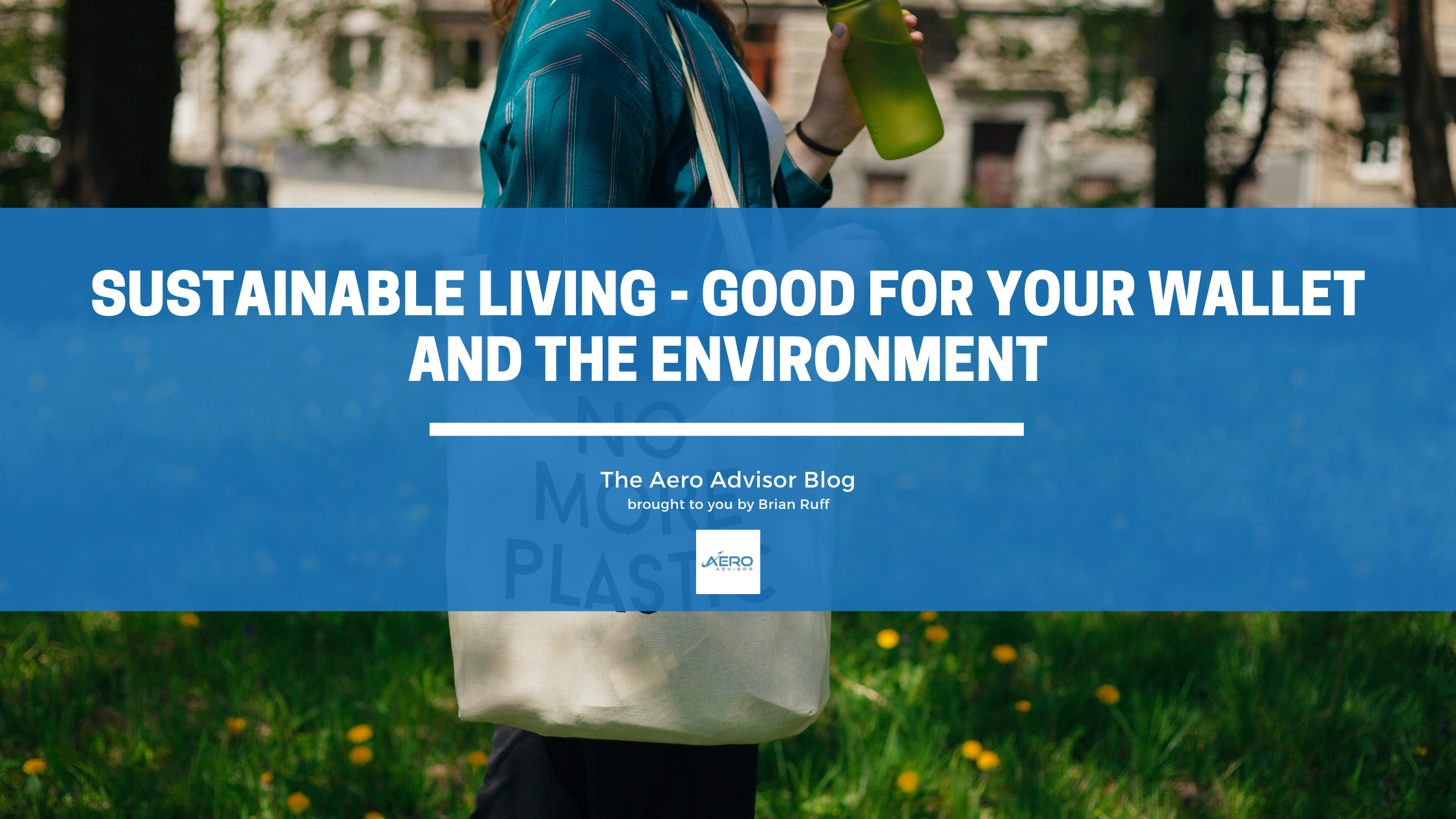From opting for metal or rubber straws in lieu of disposable ones to saying goodbye to a daily commute by working remotely, sustainable living is a hot topic for many households. But living a more sustainable life isn’t just good for the environment—it can be good for your wallet, too. Read on for some sustainability tips and tricks that can help you save money.
Identify (and Reduce) Your Most Expensive Utilities
In some parts of the country, water is at a premium—so much that an aboveground pool or lush green lawn is seen as a luxury.[1] Other parts of the country may deal with high heating, cooling, or gas bills. The cost of utilities in your area may dictate which ones it’s best to focus on when it comes to reducing usage—and, therefore, cost.[2]
In hot, sunny parts of the U.S., solar panels can go a long way toward cutting summer A/C bills.[3] Geothermal heat systems can be a boon to households in the North and Northeast, where low temperatures can send heating costs soaring.[4] But you don’t necessarily need to revamp your home to get the benefits of sustainability—something as simple as installing a timed (or low-flow) showerhead or a smart thermostat can reduce your regular water and energy use.
Go Reusable When Possible
Take an accounting of all the single-use items you use during a day, week, or month. Even by just replacing a few of these items with reusable ones, you can cut waste and cost. Some examples include:[5]
- Metal or rubber straws instead of plastic
- Washable makeup remover wipes instead of cotton pads
- A refillable single-serve coffee pod instead of single-use pods
- Thin stoneware or melamine plates instead of paper plates
- Compostable disposable cups instead of plastic cups
- Dishwasher-safe glass storage containers instead of plastic ones
Cutting out single-use items can reduce the number of times you’ll need to take out the trash each week, and the longer you use their reusable replacements, the lower your cost-per-use will be.
Another twist on the reusable items involves consignment or secondhand clothes. In 2018, the average price for a new pair of women’s jeans was more than $1501—purchasing a gently-used pair from a consignment shop can cut this cost significantly. While it still makes sense to splurge for new when it comes to undergarments, swimwear, socks, and certain other items, a mix of new and secondhand finds can go a long way toward stretching your clothing budget (as well as reducing the amount of clothing sent to landfills).
Make Your Own
Although it’s not always feasible (from a time or financial standpoint) to make your own soap or other household items, many new products are designed to help cut the production of single-use plastics. One example is laundry bars or tablets, which generate the same cleaning power as liquid laundry detergents but are simply dropped into a reusable jug. As a bonus, these tablets are small enough that you can easily stock up on them without running short on storage space. Meanwhile, many pet stores have cat litter dispensers that allow you to purchase litter by the pound and place it in a reusable container. By taking advantage of these technological advances, you’ll be able to stay green and avoid running out of regular-use products.
Important Disclosures:
The opinions voiced in this material are for general information only.
All information is believed to be from reliable sources; however LPL Financial makes no representation as to its completeness or accuracy.
1 https://www.statista.com/statistics/1026008/average-price-of-men-s-and-women-s-jeans/
[1] https://droughtmonitor.unl.edu/
[2] https://www.eia.gov/energyexplained/electricity/prices-and-factors-affecting-prices.php
[3] https://www.palmbeachpost.com/restricted/?return=https%3A%2F%2Fwww.palmbeachpost.com%2Fstory%2Fnews%2F2021%2F04%2F13%2Fflorida-solar-cooperative-panels-may-cut-energy-bill-save-electric-fpl%2F7103456002%2F
[4] https://www.whitehouse.gov/briefing-room/statements-releases/2021/04/23/fact-sheet-biden-administration-outlines-key-resources-to-invest-in-coal-and-power-plant-community-economic-revitalization/
[5] https://parade.com/960321/stephanieosmanski/how-to-quit-single-use-plastic/
Sources
https://droughtmonitor.unl.edu/
https://www.eia.gov/energyexplained/electricity/prices-and-factors-affecting-prices.php
https://www.palmbeachpost.com/restricted/?return=https%3A%2F%2Fwww.palmbeachpost.com%2Fstory%2Fnews%2F2021%2F04%2F13%2Fflorida-solar-cooperative-panels-may-cut-energy-bill-save-electric-fpl%2F7103456002%2F
https://www.whitehouse.gov/briefing-room/statements-releases/2021/04/23/fact-sheet-biden-administration-outlines-key-resources-to-invest-in-coal-and-power-plant-community-economic-revitalization/
https://parade.com/960321/stephanieosmanski/how-to-quit-single-use-plastic/
LPL Tracking 01-05140806






